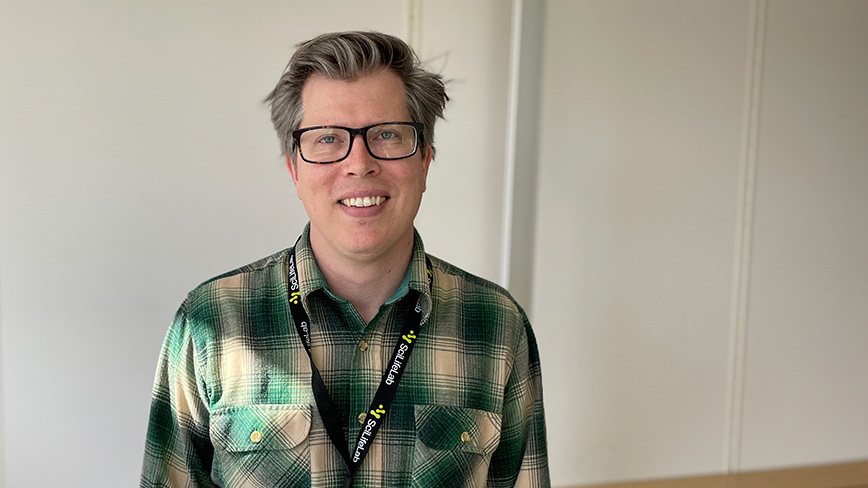Paul Hudson new Head of Divison of Systems Biology

Paul Hudson came to KTH in 2010 for a Postdoc at the Department of Protein Science at CBH, with Johan Rockberg and Mathias Uhlén. That project was part of the Human Protein Atlas. In 2022 he became Professor of Microbial bioenergy production and as of May 2023, he is the new Head of Division of Systems Biology. One of his goals as new Head is to encourage and help researchers develop courses in the cutting edge technologies of the Division.
Paul Hudson is originally from North Carolina, USA, where he also went to school and did his undergraduate education. He did his Ph.D. in Biochemical Engineering at the University of California, Berkeley, before coming to KTH for his Postdoc.
“Obviously I enjoy research and discovery and I’m fascinated by bacterial metabolism,” he says
Could you tell us about your research?
“My research is on the regulation of carbon fixation and photosynthesis. We use systems biology technologies, such as proteomics and high-throughput screening, to identify the mechanisms for how Co2 fixation is stimulated or inhibited in microbes and plants. A second part of our research is to develop new genetic engineering tools to alter these regulations. Through these efforts, we hope to create new microbes and plant lines with enhanced CO2 fixation.”
“I do believe that bioenergy is part of the solution for the climate and that it will contribute to reduced carbon dioxide emissions.”
Do you have any visions as new Head of Division?
“The Division of Systems Biology is located entirely at SciLifeLab. A hallmark of the Division is the application of cutting-edge technologies and a high potential for translation to society. This excellent science is thanks to the Division faculty, and I can be a voice for the Division activities and research lines within KTH decision-making committees."
"One thing that I would like to do is encourage and help researchers in the Division develop courses on these technologies. For example, systems biology generates large datasets, and we excel at the analysis of such data using statistical and machine-learning tools."
"Another is in developing computational models of metabolism, which are used to interpret biological data. Skills in data analysis are as important as operating hardware. It is important that we train KTH students in these technologies, as they are now a critical part of biotech innovation."
Outside work, one of his recent interests is in learning piano together with his children. He may be a brilliant researcher but he’s no piano virtuoso – yet.
“I’m terrible!”
Text: Åsa Karsberg

